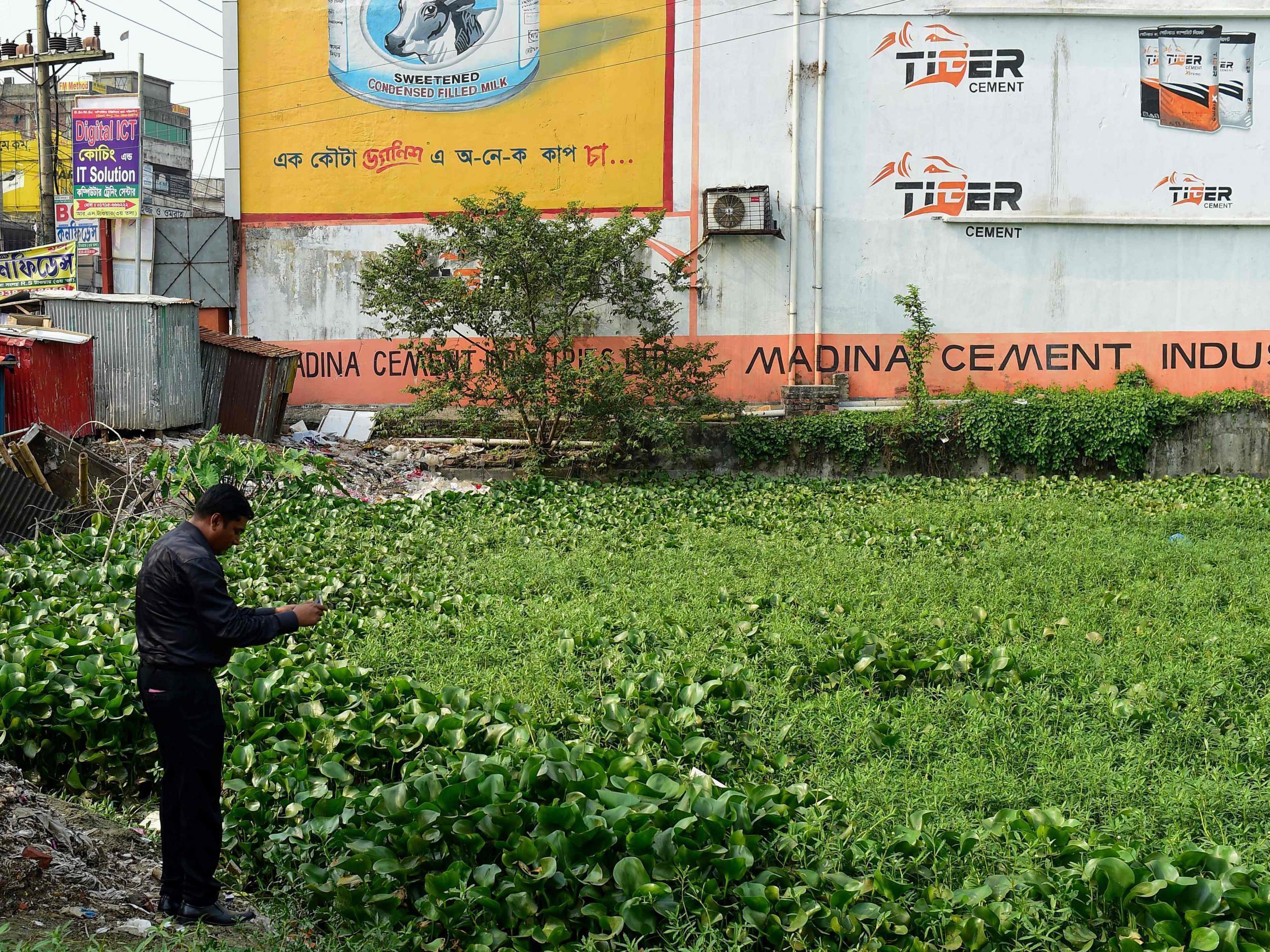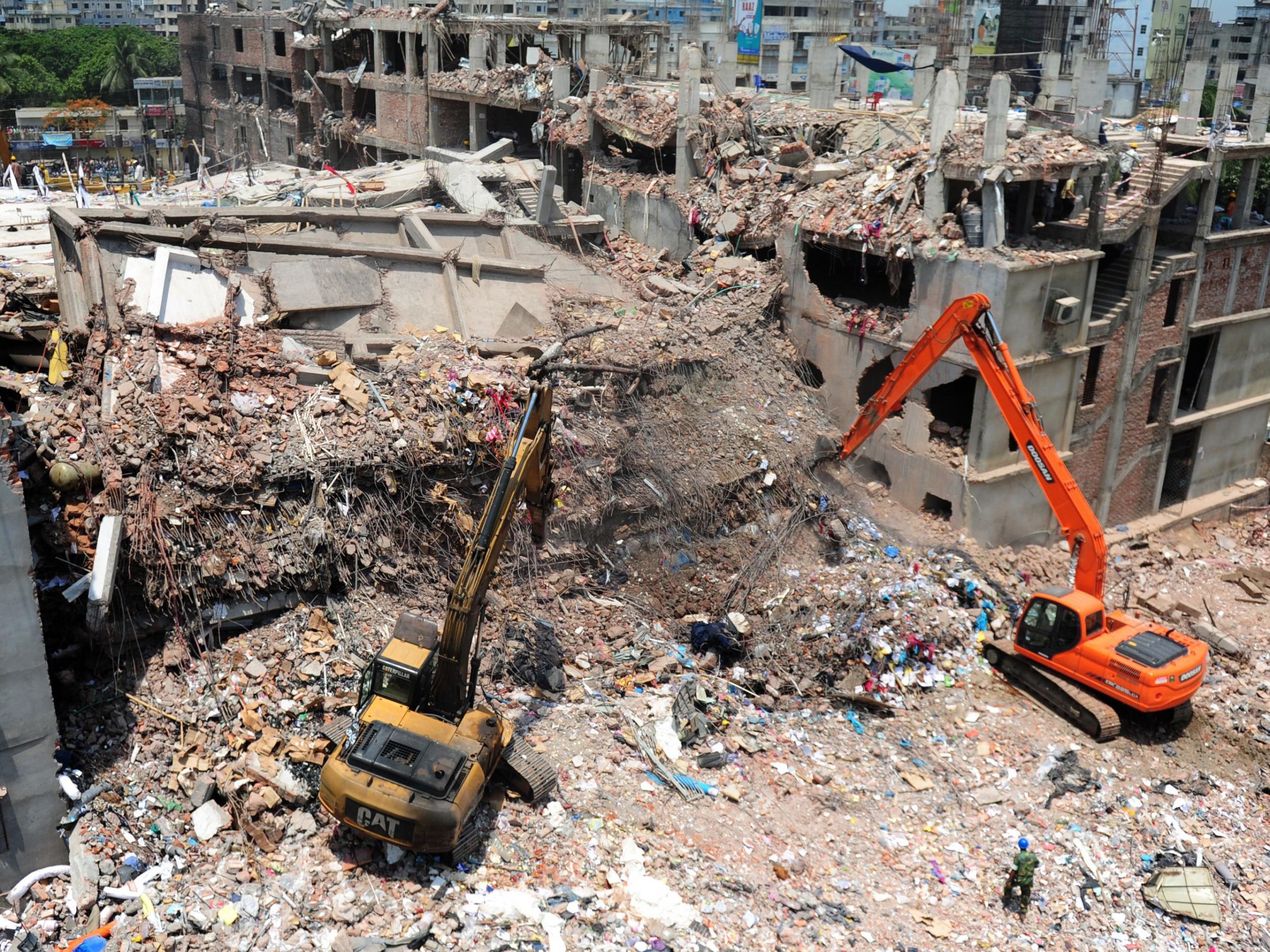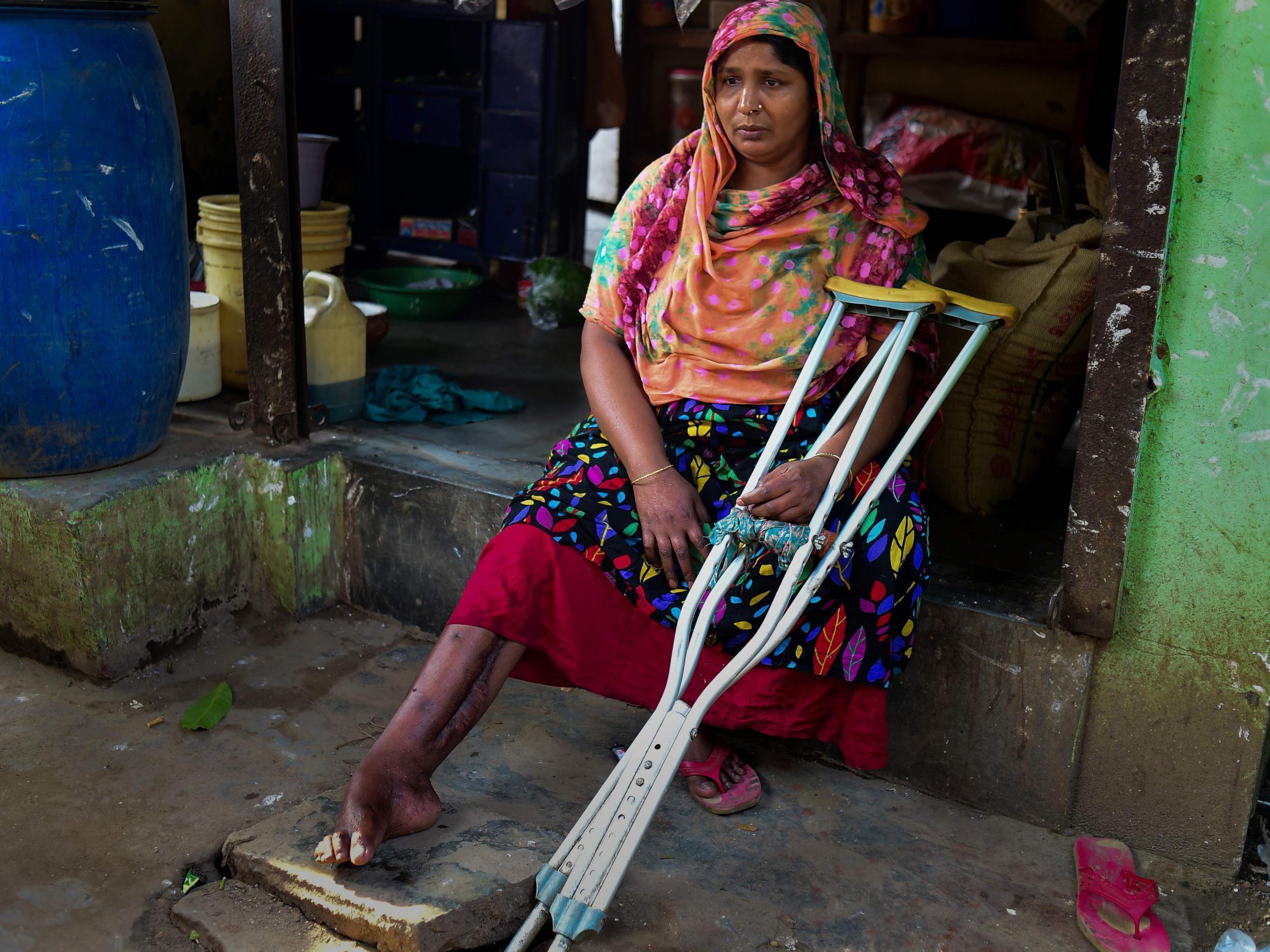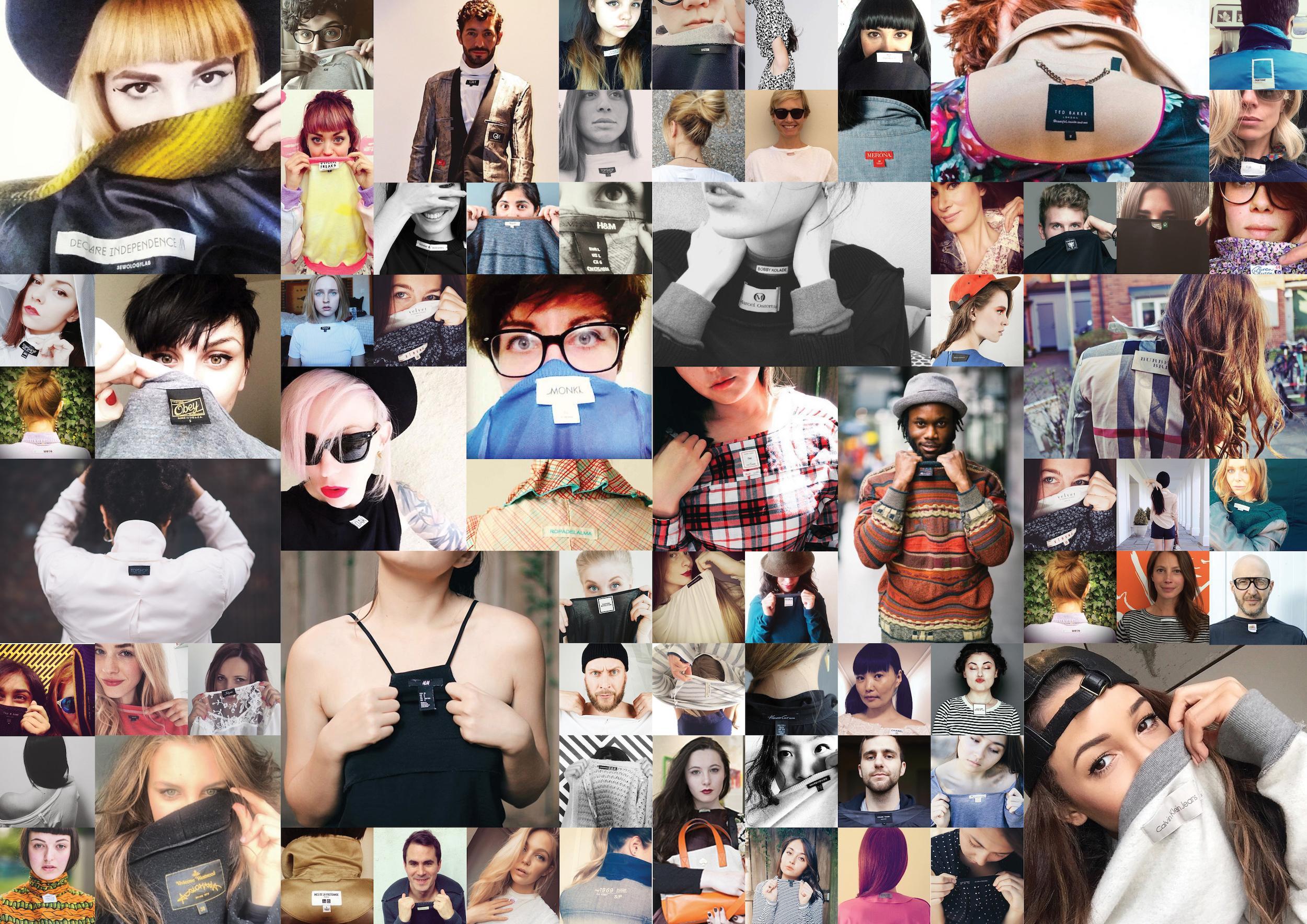Fashion Revolution Week 2018: Five years on from Rana Plaza collapse, what has changed?
On the fifth anniversary of the disaster, Fashion Revolution are encouraging millions of shoppers to ask brands #whomademyclothes and demand greater transparency

Your support helps us to tell the story
From reproductive rights to climate change to Big Tech, The Independent is on the ground when the story is developing. Whether it's investigating the financials of Elon Musk's pro-Trump PAC or producing our latest documentary, 'The A Word', which shines a light on the American women fighting for reproductive rights, we know how important it is to parse out the facts from the messaging.
At such a critical moment in US history, we need reporters on the ground. Your donation allows us to keep sending journalists to speak to both sides of the story.
The Independent is trusted by Americans across the entire political spectrum. And unlike many other quality news outlets, we choose not to lock Americans out of our reporting and analysis with paywalls. We believe quality journalism should be available to everyone, paid for by those who can afford it.
Your support makes all the difference.Fashion is the master of reinvention – it’s the creation and recreation of irresistible trends; beautiful clothes are the making of iconic Hollywood characters; a good choice of outfit never fails to transform your mood.
However, the £2 trillion industry is also the master of trompe l’oeil, disguising a degrading and exploitative industry on a carefully curated catwalk of beautiful clothes and beautiful people.
But not this week: Fashion Revolution Week is a movement demanding more transparency and better conditions for garment workers across the globe.
It’s an obvious nod to international fashion weeks – but inverts the traditional catwalk by hosting “Open Studio” in cities across the world, inviting people into the workshops of fashion brands such as Stella McCartney, Vivienne Westwood and Christopher Raeburn, who are throwing their doors open to the scrutiny of the public.
#whomademyclothes
The building housed five clothing factories, working for high street brands including – but not only – Benetton and Primark. It had cracks in the walls and there had been warnings it was unsafe, yet the workers were forced to go to work that morning, regardless.
The tragedy shone a spotlight on the appalling conditions so many of our clothes are made in.
Around 75 million people, predominantly women, work in fashion and textiles across the globe. IndustriALL Global Union report that 90 per cent of these workers have no possibility of negotiating their wages or conditions. Many workers at the bottom of the chain are “subject to exploitation, verbal and physical abuse, working in unsafe conditions, with very little pay”.
Meanwhile, at least six of the world’s top 20 richest people on Forbes’ list of billionaires last year were in retail – including Amancio Ortega from Zara and Bernard Arnault, CEO of luxury goods conglomerate LVMH, which owns Louis Vuitton.

The collapse of Rana Plaza highlighted that a more expensive top doesn’t necessarily equate to more pay or better working conditions, as all fashion brands, from Primark to luxury Bond Street stores, use the same factories. The only reason Benetton and Primark could be linked to Rana Plaza was because their labels were found among the rubble – along with the bodies of the victims.
As a direct result of Rana Plaza, Fashion Revolution was created by ethical fashion designers Carry Somers and Orsola de Castro, a movement demanding more transparency in the fashion supply chain.
If there’s more transparency then brands can start to be held responsible, not only for huge tragedies like this, but also for 18-hour working days, workers only receiving two days off a month and no lunch breaks in the name of “fast fashion” and huge profits.

“If unions and workers in Bangladesh have a list of where brands are manufacturing, it’s so much easier for us to resolve problems quickly. We can address issues directly with brands,” says Nazma Akter, trade unionist and founder of the AWAJ foundation, which campaigns for legal empowerment of workers in Bangladesh. Akter was just 11 years old when she started working up to 70 hours a week with her mum in a clothing factory.
There have been some successes, and ethical fashion brands are rising in popularity.
Somers says :“The industry is starting to change. More brands are being open about where their clothes are made. More manufacturers are making their factories safe. More producers are being seen and heard.”

But systemic change is yet to happen. The Bangladesh government delivered a 77 per cent increase in the minimum wage to £49 per month for garment workers. Yet Garment Workers Diaries found that in Bangladesh, Cambodia and India many clothing makers were not even being paid a legal minimum wage – let alone a living wage – which makes the increase to minimum wage meaningless to millions of workers.
Unfortunately, human rights don’t evolve at the same speed as trends. Especially in trillion-pound industries.
Which is why, five years on, it’s important we all keep the pressure up and take to social media to ask brands #whomademyclothes?
The Fashion Revolution manifesto
This year, Fashion Revolution has launched its manifesto in parliament – a 10-point plan for a cleaner, safer fashion industry.
Calling for democracy in fashion and for success to be measured by more than just profits, it’s a manifesto that could be extended across all industries.
Sign it here: www.fashionrevolution.org/manifesto
The Fashion Transparency Index
The Fashion Transparency Index tracks how much brands reveal about their social and environmental policies, practices and impacts.
Adidas and Reebok have come out on top; closely followed by Puma, H&M, Esprit, Banana Republic, Gap, Old Navy, C&A and Marks and Spencer, completing the top 10 of 150 brands included in the study.
This doesn’t mean these brands necessarily have better working practices. Or that the information they are sharing is necessarily good. In fact, no brand or retailer in the survey scores more than 60 per cent.
But it does mean these companies are disclosing some information to the public about how and where their apparel is produced and therefore they are starting to take responsibility for their supply chains, which is a significant and positive step in the right direction.
Find out more about transparency here: www.fashionrevolution.org/about/transparency
Find out more about Fashion Revolution here: www.fashionrevloution.org
Lizzie is the founder of ethical fashion and food website, bicbim.co.uk. Follow her on Twitter @LizzieRivs and @bicbim
Join our commenting forum
Join thought-provoking conversations, follow other Independent readers and see their replies
Comments